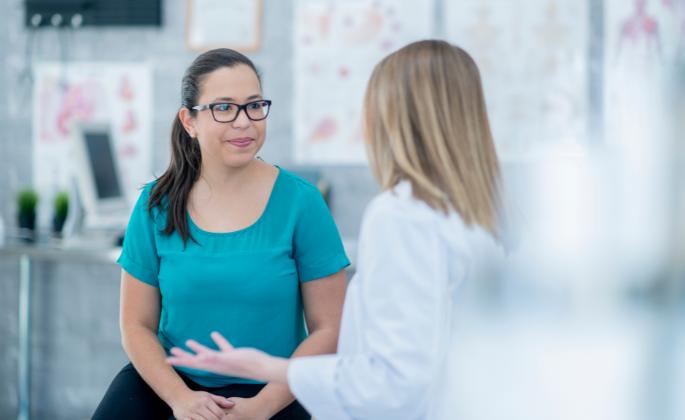Morgan Eagan (she/her) is an Admissions Coordinator for The Emily Program and a longtime advocate for destigmatizing mental health. She has a history of working with both adults and children diagnosed with autism spectrum disorder (ASD) and, in recent years, has discovered a passion for helping individuals seek eating disorder care. Morgan is committed to making the process of seeking treatment as accessible as possible. With this blog, she hopes to alleviate the confusion she often sees when individuals are first diagnosed with an eating disorder. She aspires to continue aiding The Emily Program clients in their steps to recovery and deconstructing the negative connotations associated with mental health treatment.
When you or your child is first referred to eating disorder treatment, it can feel scary and overwhelming. On top of that, it can be confusing if the type of care recommended by your primary care provider differs from what the admissions specialist at the treatment center suggests. Treatment centers conduct more specialized assessments, which often reveal a fuller picture of an eating disorder.
Eating Disorder Education in the Medical System
Due to the complexity of eating disorders, it’s understandable that the average person may not fully recognize what an eating disorder is, what the different types are, and how they can present. We assume that our doctor will catch the signs of an eating disorder once symptoms escalate. While medical providers are dedicated to offering the best care possible, the unfortunate truth is that there is limited exposure to eating disorder education in medical training. This means that early signs may not always be identified, missing an opportunity to intervene early.
For example, a study from the International Journal of Eating Disorders found that 80% of residency programs in the United States do not offer any eating disorder rotations. Similarly, a survey of family medicine residents and family physicians highlighted a need for more robust communication and confidence around eating disorder diagnoses. Many providers surveyed expressed discomfort in addressing symptoms due to a lack of concrete data to support their concerns. This knowledge gap is largely attributed to the fact that symptoms don’t always materialize in the routine health data that providers typically monitor.
Recovery is Within Reach
The Emily Program believes that with the right education and awareness, all providers can aid in the early detection and treatment of eating disorders. This is why we collaborate with healthcare providers, providing free virtual continuing education seminars, resources on our website and social media channels, and expert guidance to enhance patient care. While there is still work to be done in providing comprehensive education on eating disorders, we remain optimistic that awareness will continue to grow, improving early detection and patient outcomes.
At Emily Program, we are dedicated to supporting individuals wherever they are on their journey to recovery. We offer eating disorder education to our clients, give them tools to repair their relationships with food and their bodies, and so much more.
If you, a loved one, or a patient is exhibiting the signs of an eating disorder, help is available. Call The Emily Program today at 1-888-364-5977 or fill out our online form, and we’ll reach out to you. Refer your patients here.
